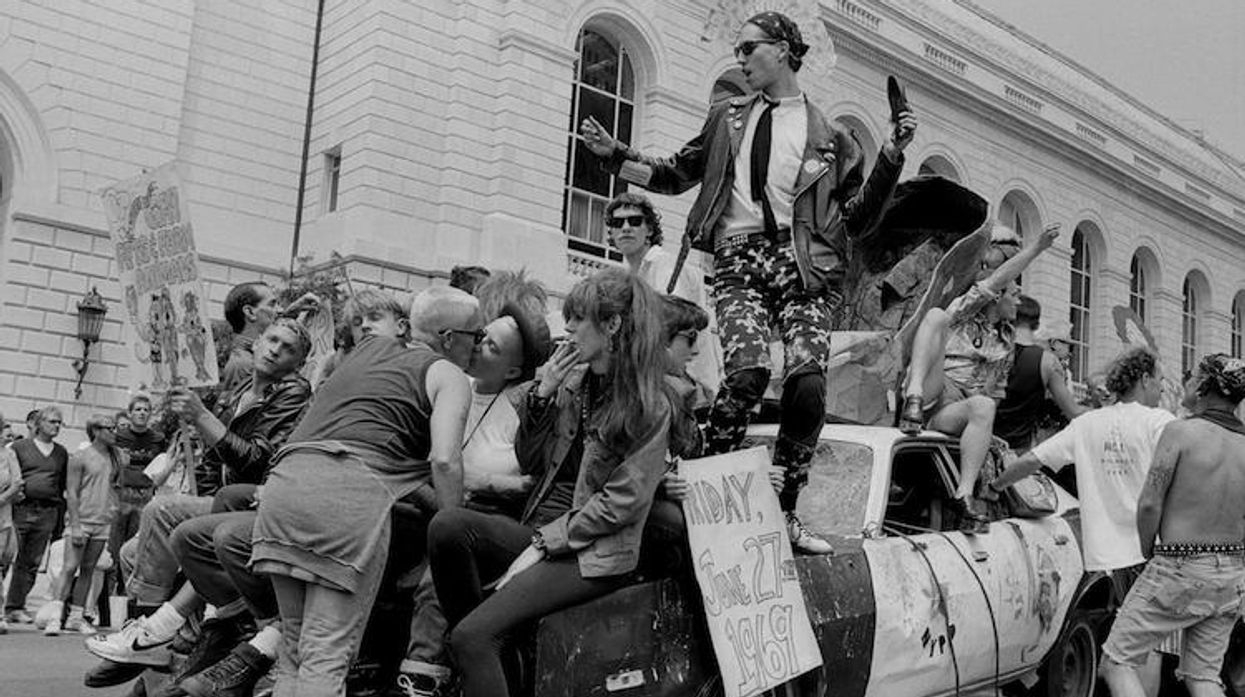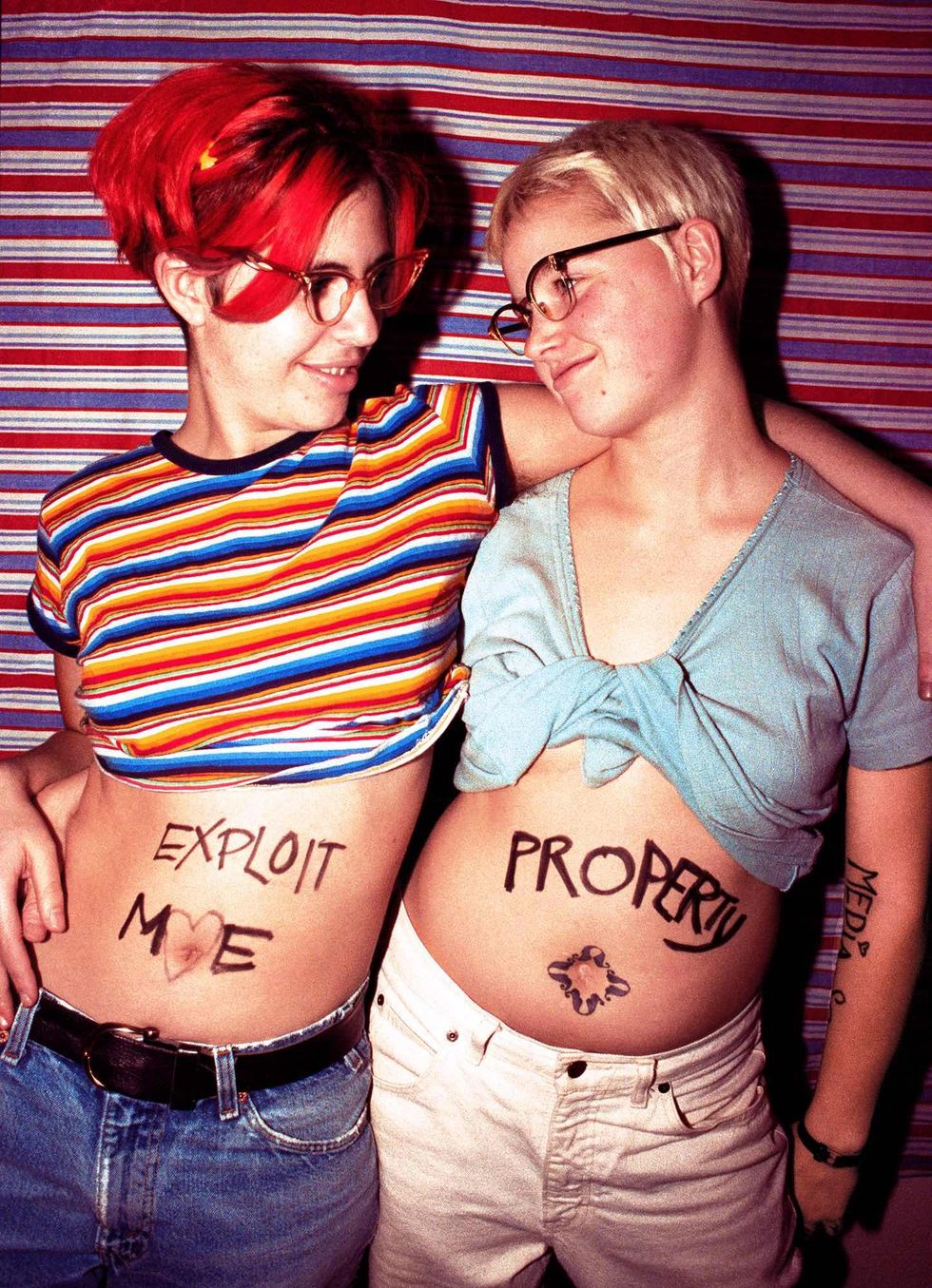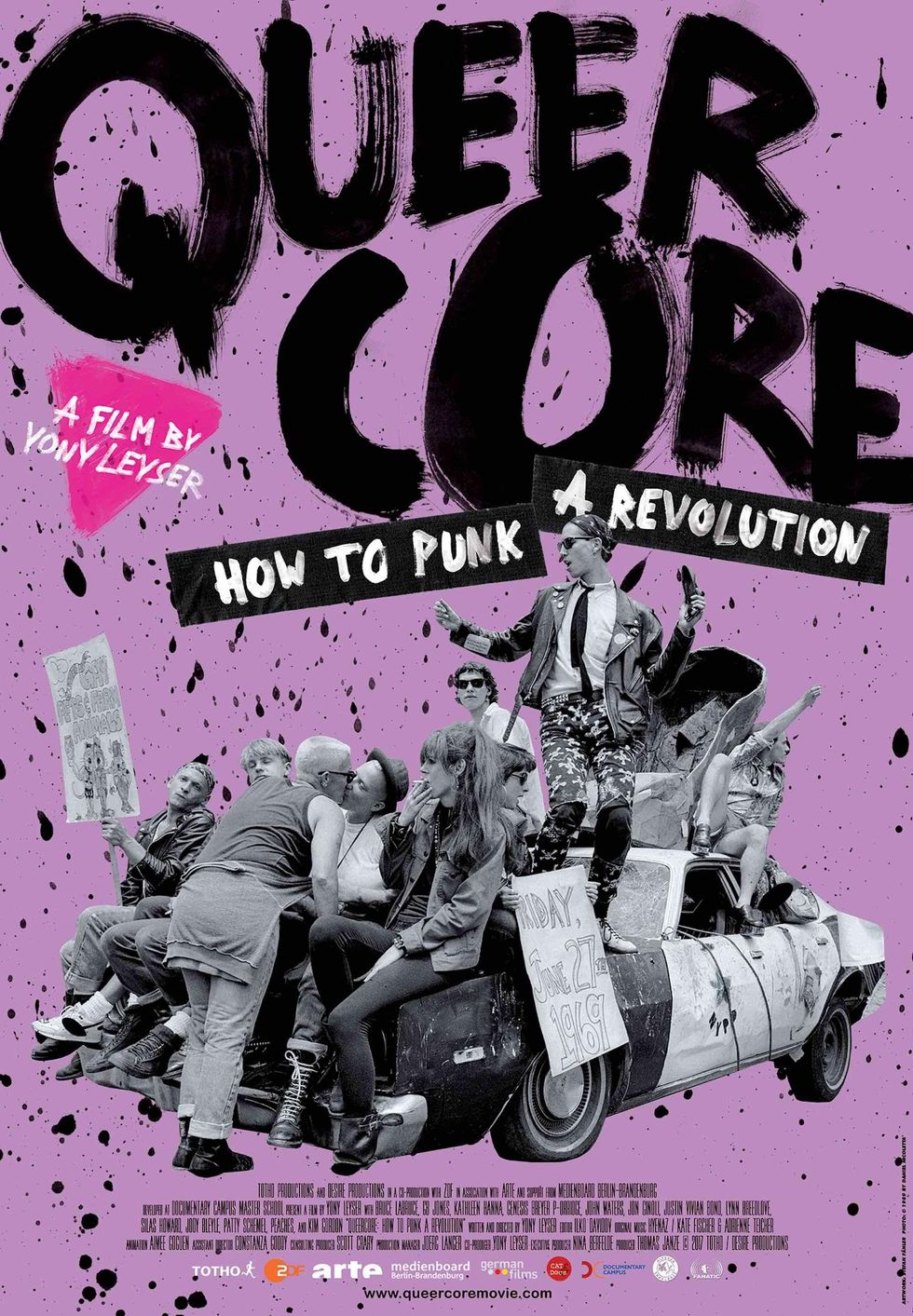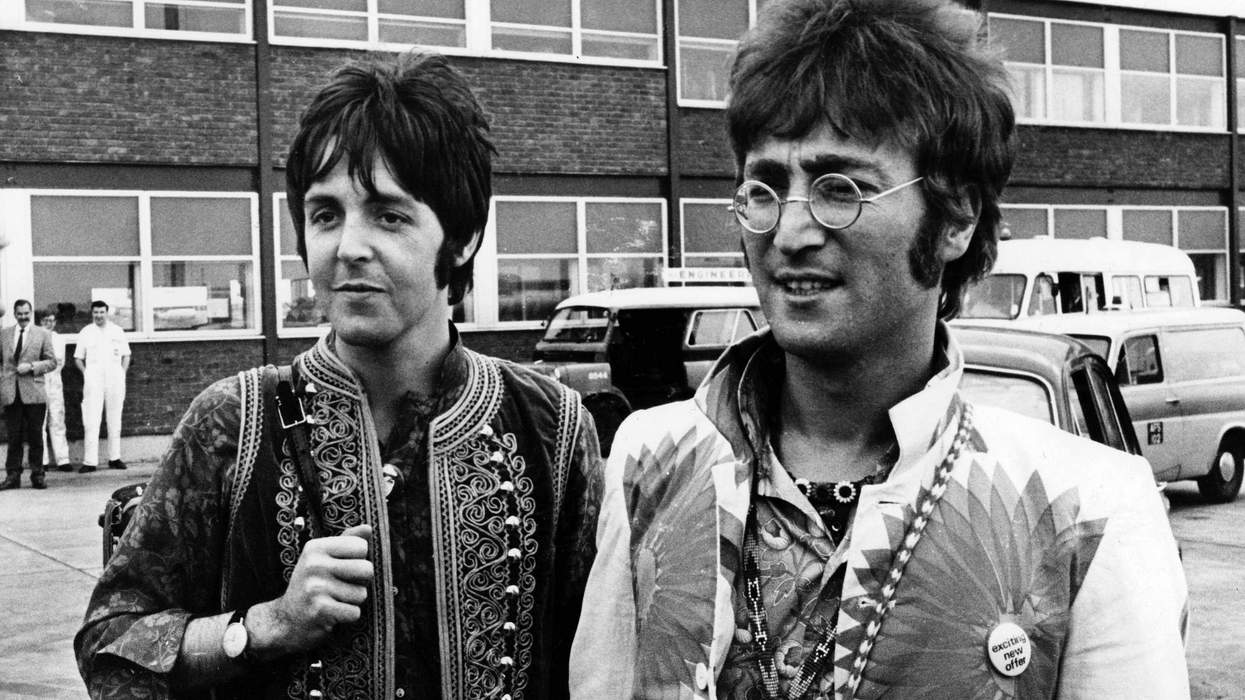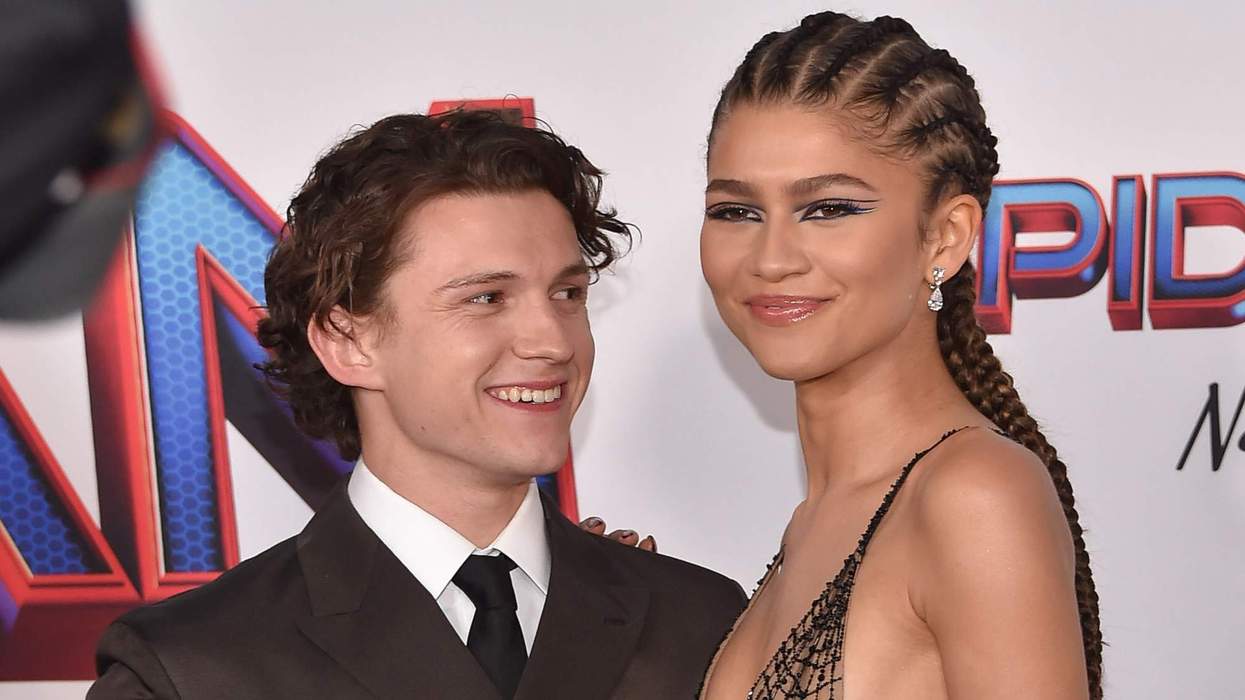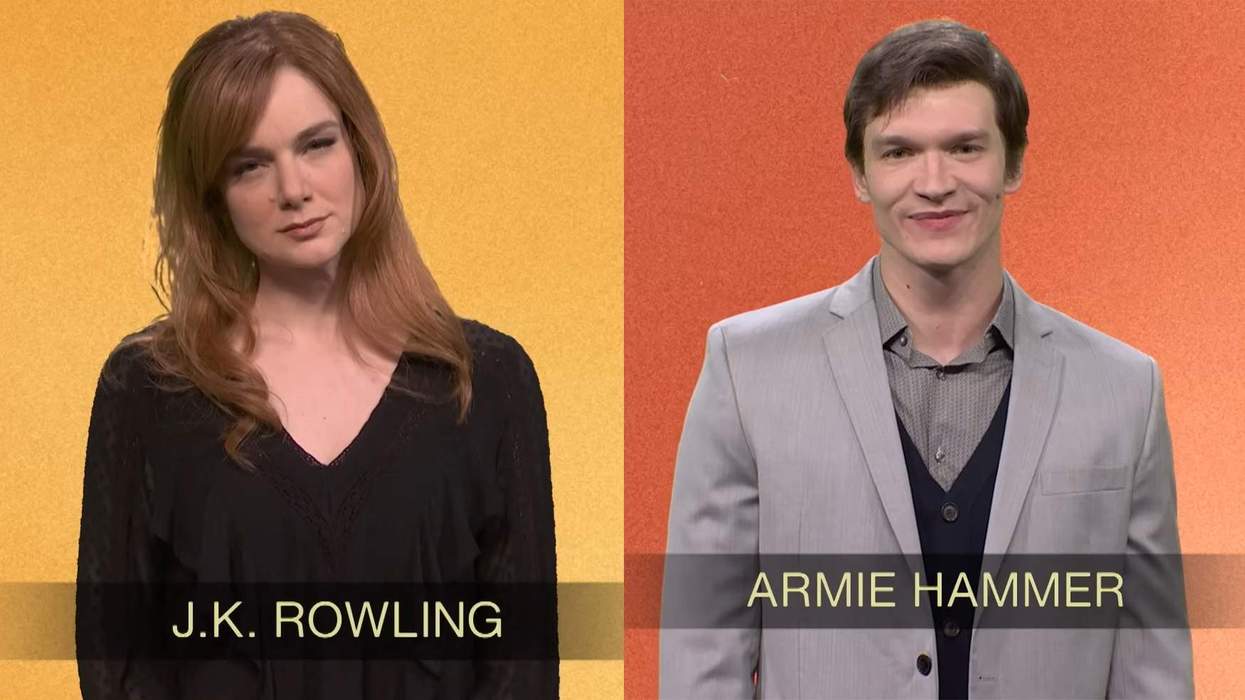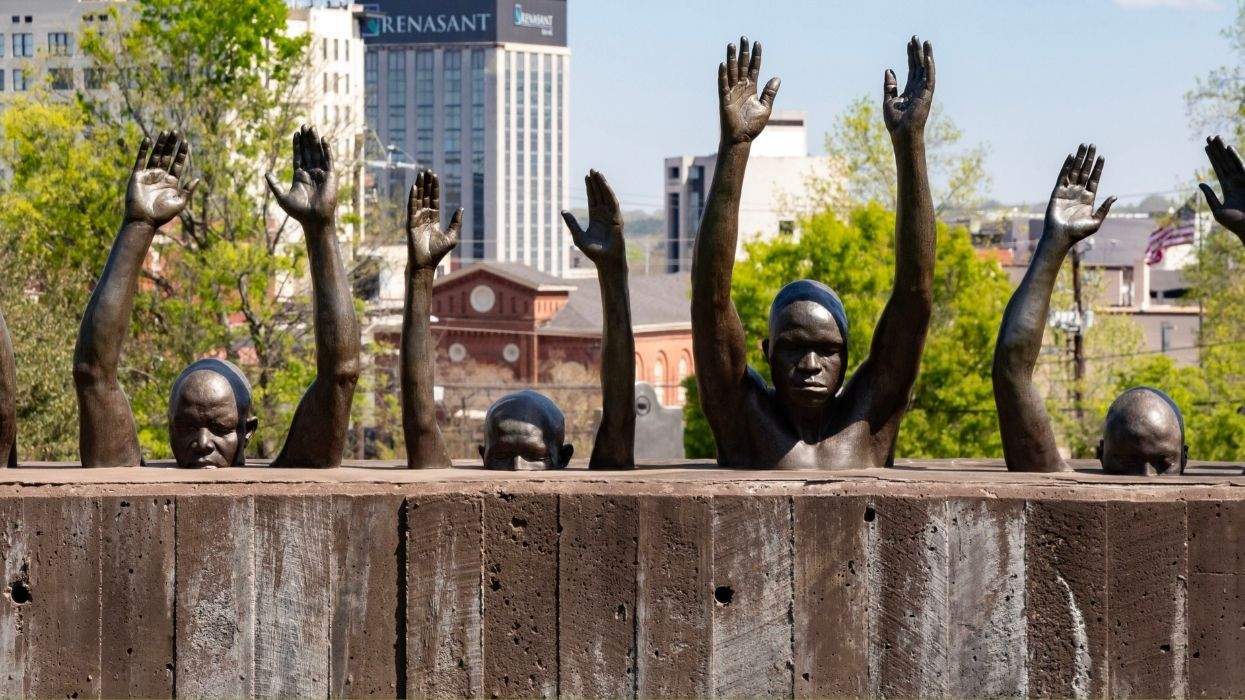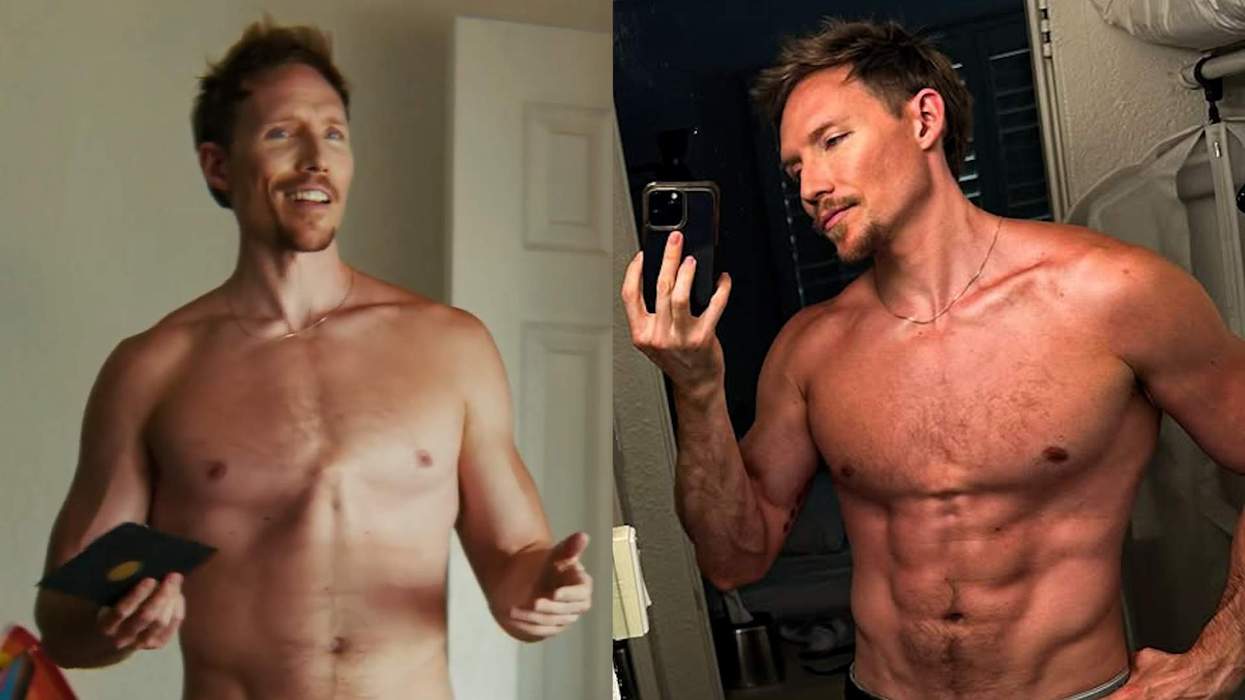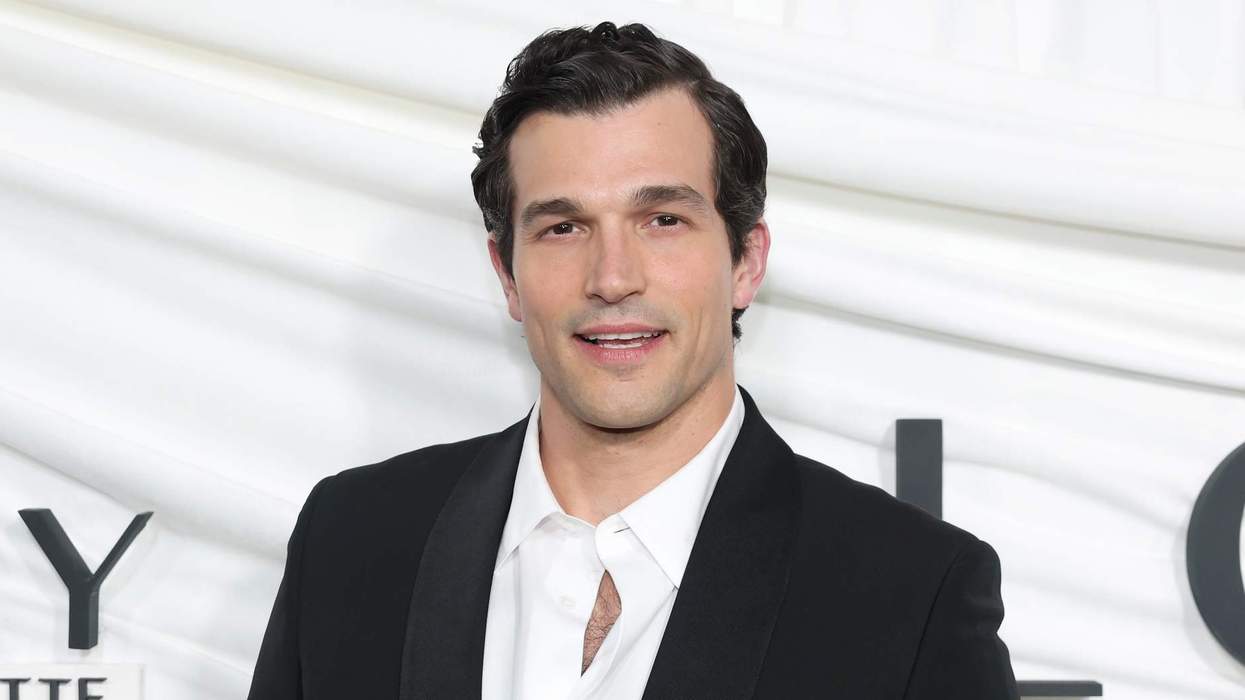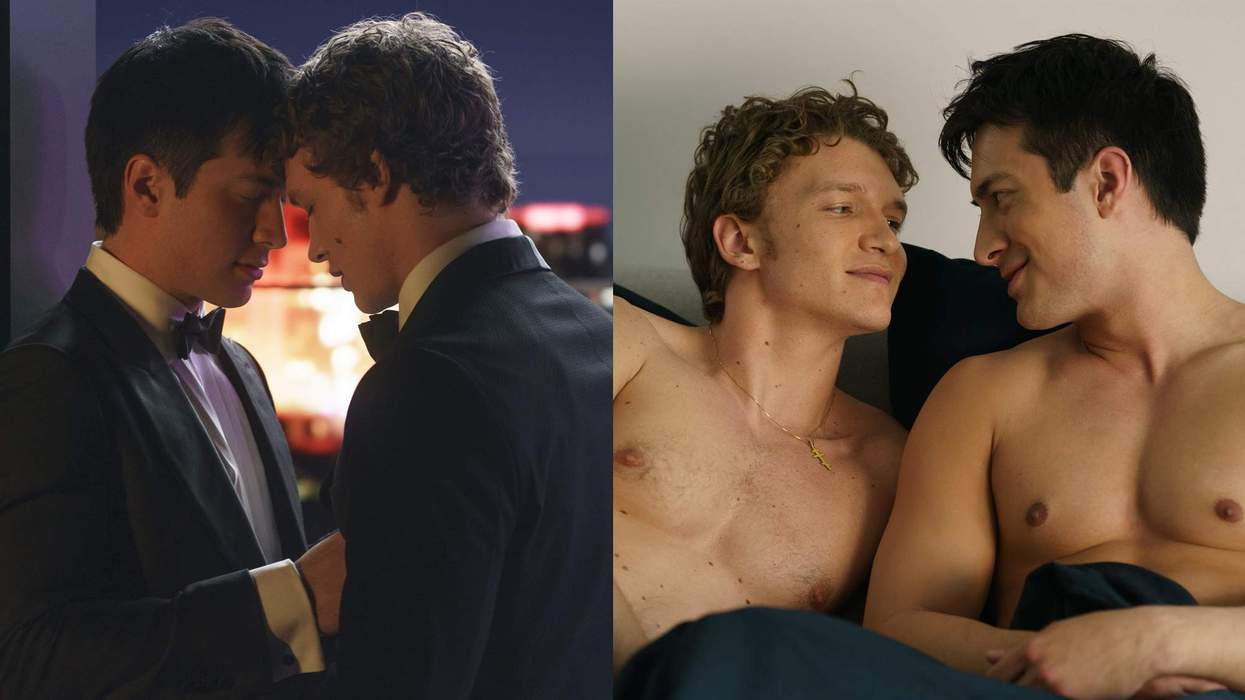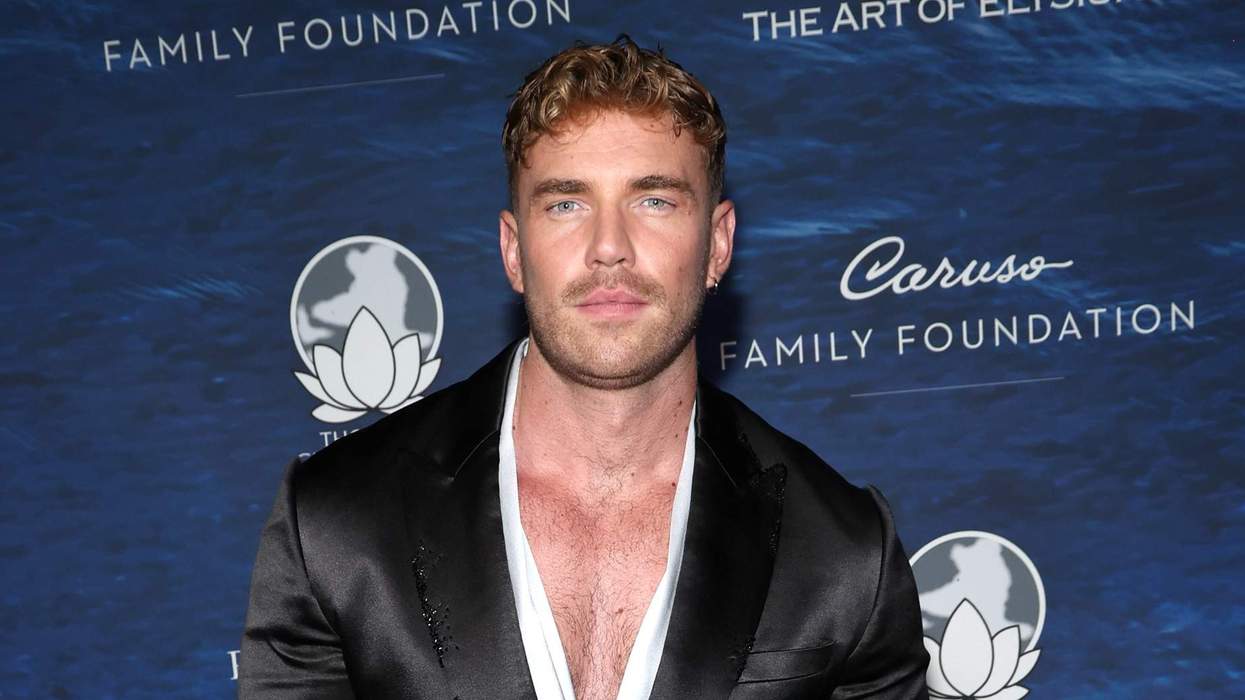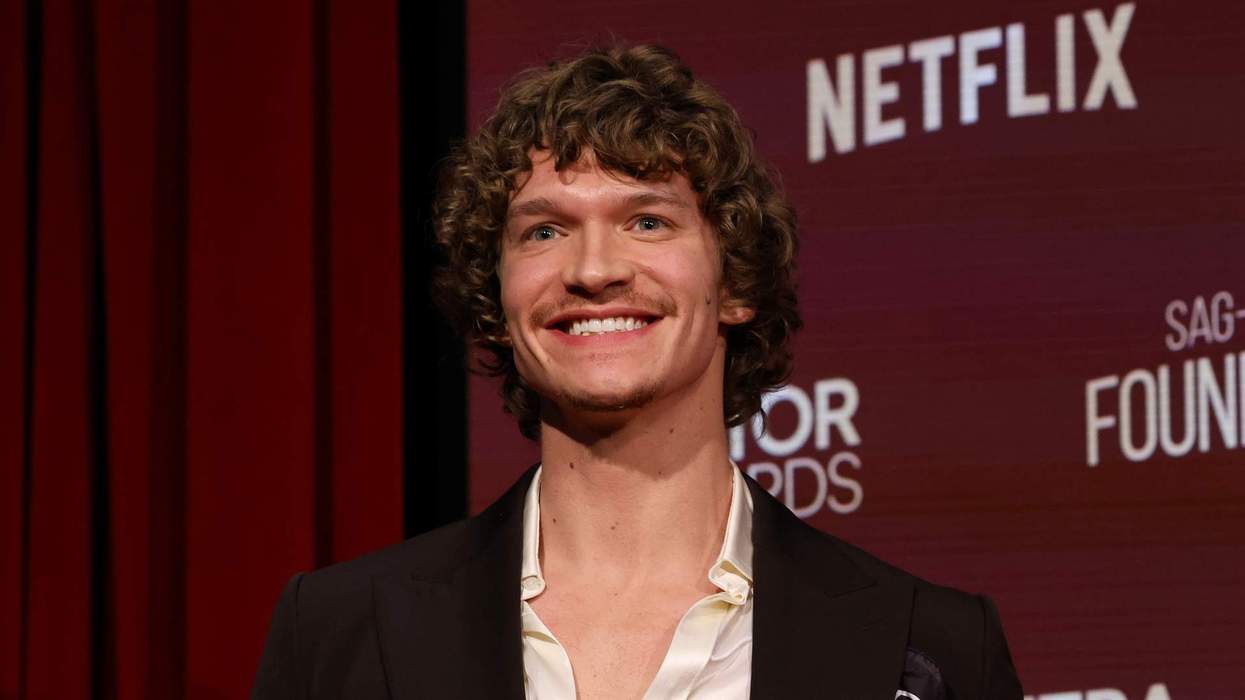Between shifts at a dingy, 24-hour diner in Toronto in the 1980s, a movement called queercore was born. Now, decades after being dreamt up by punk legend Bruce LaBruce and his friend G.B. Jones with the zine J.D.'s in 1985, the movement that ripped through the musty fabric of the punk and gay scenes has been immortalized in director Yony Leyser's film, Queercore: How to Punk a Revolution.
Charting the history of the movement dreamt up in Toronto through its spread from San Francisco and Chicago to Los Angeles and beyond, Leyser illuminates the queercore bands and figures that cultivated the scene.
Related | Bruce LaBruce's Erotic 'Faggotry' Photos Are Now Available at the Tom of Finland Store
Footage of Pansy Division shows and Bruce LaBruce films is interspersed with some of the movement's most illustrious figures reminiscing about the revolutionary scene they created out of nothing, including Genesis Breyer P-Orridge, John Waters, Justin Vivian Bond, Lynn Breedlove, and filmmaker Silas Howard. Throughout the film, iconic moments in the movement's history are given their due, including the infamous San Francisco Pride Parade in 1989 when a ragtag band of queer punks smashed a fake cop car with high heels and baseball bats.
To celebrate the film's U.S. screening tour that took it from coast to coast, we caught up with Yony Leyser, Bruce LaBruce, and Silas Howard to talk about what queer means to them today, "fake news," and why humor is key to fighting fascism.
OUT: Yony, was there any particular spark that inspired you to create the film?
Yony Leyser: I knew I wanted to make a documentary about a deviant queer history or person. In 2011, I went on tour with a group of queers called Sister Spit and in all of the little towns that we stopped at, I saw queer punk scenes and how much queercore inspired these people.
For a lot of young queer people these days, they put their focus on marriage and acceptance. Young radical queers have a lot to say and the world is in such shambles right now so it's time to get radical again. And gays can be fascist too. Some early Nazis were homosexual. There's a great book called Gay Berlin by Robert M. Beachy about the early homosexual movements. One of them was called The Masculinists and they were early Nazi supporters. There's nothing that holds back a homosexual from oppressing other people. We need to realize that with our status as a minority, we should be in solidarity with others rather than trying to take advantage of the small bits of power that we are granted.
Bruce, you created this whole movement in the 1980s. Tell me about your thought process at the start of it.
Bruce LaBruce: It was a kind of romance more than anything else. It was the '80s and I'd been in university and was disillusioned with academia. I'd gotten my Master's degree in film and social and political thought, but at the same time I'd been hanging out in the punk scene and alternative art scene. We were all broke and had been working at these funky 24-hour restaurants where all the punks and musicians and artists hung out. That's where I met G.B. Jones and my friend Candy Parker. We rejected these more mainstream institutions like academia and the gay mainstream, which even at that time had all the same problems as it has now. Lack of intersectionality. It was a middle class, white male movement, even though the early roots of the gay movement were quite Marxist. I still participated in the gay movement in those terms, but punk was more aesthetically and politically interesting. There was more energy and it was less rigid. It was just a case of realizing that as great as the punk scene was, it wasn't very open to alternative sexualities. It had its own prejudices and racism.
Once we made that realization, then it was a matter of splintering off in a way and starting our own movement. G.B. Jones and I were two very romantic characters who both felt like we were outsiders and didn't fit in. We would sit up very late at night and write manifestos. We corresponded with people all over the world so we'd be writing letters all the time. G.B. was really into bubblegum music. She had a lot of Archie comics and she did this brilliant thing where she would cut and paste Archie comics to make them gay -- to make Jughead and Archie lovers. That was the basis of it.
Erica and Angie at the Evergreen State College Olympia WA 1992. Photo credit: Alice Wheeler.
The word "queer" has become a big buzzword lately and so many brands have begun to use it. What does that word mean to each of you personally?
Yony: Queer is something that as a definition, I really try to define in the film. The movie is talking just as much about what queercore is as it is to my definition of queer. I like how Penny Arcade defines it in the film as the feeling that you're being ostracized and alienated to the point where it marks you as an outsider forever. Being queer for me means embracing our status as an outsider and using that to change the system outside of a heteronormative, oppressive way.
Bruce: Queer has been many things over the years for me. There was a point when Queer Nation in the early '90s started using it so we backed away from it a little bit. We rejected "gay" and used "homo" instead and liked "fag." We always liked "fag" and "f****t" and "faggotry." The same with preferring "dyke" to "lesbian." The reason to jump from word to word all the time is this idea of being nimble and not being fixed. To be willing to realize when a movement or the name of a movement becomes associated with something that is no longer useful to you. In order to not be entrenched or appropriated, you have to shift around.
Silas Howard: I actually love that queer is used more loosely. For me, it was so much about creativity and politics and identity all bunched together. It was very much influenced by coming of age when a lot of people were getting sick and dying of AIDs and not fitting in anywhere. I was thinking about it the other day. There's all this corporate sponsorship [around "queer"] and back then, nobody would come near us.
Now I work in all of this amazing television. I'm pushing as much as I can with these storylines and hopefully bringing more people into the mix. The waves are shifting right now because it's not all co-opting. A lot of it is people having power that came from that era too -- we're finally getting access after being marginalized for so long. Things get misused but that's the price of visibility.
Do you feel that because queercore became mainstream, it lost a little bit of its edge?
Yony: No movement is made to last forever. The young people always have to take over from the older people who get set in their ways. Punks, hippies, beatniks, and whatever counterculture we see, it has an expiration date. Something new needs to come refresh it because anything that exists for too long eventually becomes corrupt.
Silas, you've gone from your first film, By Hook or By Crook in 2001, to directing episodes of Transparent and Pose this year. What changes have you witnessed in that industry?
I think that shows like Transparent and show creators like Ryan Murphy are pushing the edges of definitions, which is exciting. I've always loved entertainment and politics. My old punk band Tribe 8 was serious, angry, irreverent, and goofy. We put on a crazy show. I've never minded trying to push against the mainstream and capitalism with humor and entertainment. You want to have hope and believe that you actually do make change even when so many things are taking steps backward.
Related | Cover Exclusive: The Cast of Pose Takes Center Stage and Makes History
On Pose, I was a co-executive producer so I was on the whole season and got to watch all of these incredible cast members and writers have centered stories. That's the core of why I feel that queercore and homocore worked for me -- we got to center our stories unapologetically. I just worked on an episode of High Maintenance, which is so totally different but they're the kind of show that every casting call they put out opens it up for nonbinary, queer, and trans people. If they like an actor and their ethnicity is different than what was written, they change the storyline to fit the actor. They do that without even making a big deal out of it, which I really appreciated.
Bruce, it's interesting to look back at this fake movement you created and now we deal with "fake news." Do you feel that you'd be able to start a new movement today in the same way you created queercore back then?
Bruce: No. Now, it wouldn't work because "fake news" is really sinister. We were doing it for what we considered ideologically necessary political activism. There were definitely elements of jokes and pranks in what we did but now there is something sinister about what's going on. First of all, it's done on a mass scale and we were doing it largely underground. Now it's done more in the service of brainwashing whereas we did it out of a desire to recruit and reach lonely queer kids in the middle of nowhere. Kids who didn't have any hope or social interaction with people of their own kind. It was more idealistic.
Silas, I want to go back in time to the infamous high heel pride parade in San Francisco in 1989. How did that moment change the trajectory of your life?
Silas: At the time, I was just this in-betweener. I didn't fit in in the lesbian bar. I was wandering around like a lost child and saw that parade with my friends Justin Vivian Bond and Harry Dodge, and we were like, "That's our people!" They looked like how I felt. What I saw that set it apart from the fringes of the indie rock world I was trying to find a home in was this anger and hotness. It was so urgent. It wasn't just that we were going to yell, we were going to look good and makeout too. We were going to have sex because everyone told us we can't because it will kill us. Everything was push, push, push.
I also love that I saw that anger being used in this really amazing and powerful way. I grew up very working class in a small town and I saw anger around me growing up used by people to hurt themselves. People who were disempowered drank alcohol and hurt themselves in other ways so to see anger at the system be pointed at the system, I couldn't unsee that. That was the most important part.
There seems to be a new generation of rebellious queer kids rising up. What are your thoughts on this new wave of queercore?
Yony: It's interesting. Even original queer punk bands have a new thrust to them that's inspired by queercore. It's being led by a lot of queer women of color in bands like Fuck U Pay Us and Special Interest in New Orleans. They're a mix between queercore and the queer hip-hop movement -- Cakes Da Killa and Mykki Blanco and Zebra Katz. Punk under Trump has been reborn and there's a lot of internet activism. People are starting to do zines again. Young people are getting inspired by the rebelliousness of queercore and the punk movement in general, especially under the growing fascism we're seeing around the world.
Silas: More than ever, I feel so connected to young people. The way they're able to hold on to their fluidity and understanding of other peoples' desires to be a certain way. The rest of the world is going to hell and the younger people fucking have it going on. They understand their privilege more and a lot of the time, we didn't in the scene. I have hope and I'm inspired by them.
I'm curious about your thoughts on identity politics. Everyone wants to label themselves. Even if they're bisexual or pansexual or whatever, it's still reducing that to a label.
Bruce: I think identity politics has gotten completely out of control, especially in terms of ownership of certain identities. There's even a suspicion or mistrust of anyone who doesn't conform to certain kinds of rigid rules around language. It's a policing and it existed in the '80s. There were certain elements of the gay movement that were Stalinist. They were the first social justice warriors. You felt like they were judging you and reporting you if you did something wrong. There were all the same problems that exist today; it was an echo chamber phenomenon. You only listen to the same point of view. Those are the things that the Left has to watch out for. It can also get really humorless.
Everyone is super serious nowadays.
Bruce: Yeah and that's a big mistake. Irony and sarcasm and camp are things that queers have always used as weapons or coping mechanism. If you don't have that outlet, the super seriousness can really drag you down and make you dour.
Yony: Humor is such a powerful weapon. That was one of the greatest things about queercore was the humor. Since the 90s, this safe space and politically correct movement of mostly upper-middle-class white academics has become very serious. I think that's a shame that they reject humor and creativity that can really be a strong, sharp edge to cut through fascism.


